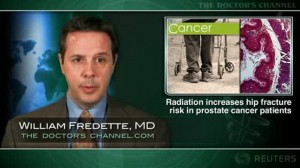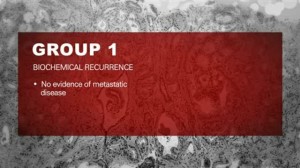NEW YORK (Reuters Health) – Men whose baseline PSA is less than 2.0 ng/mL are unlikely to benefit from further screening for prostate cancer, according to findings reported in Cancer and released online September 13th. The balance of harm and benefit with early detection of prostate cancer is more favorable when the baseline PSA is at least 4.0 ng/mL.
Numerous studies have looked at the pros and cons of screening for prostate cancer, assessing the risk of overdiagnosis and overtreatment against the reduction in prostate cancer-specific mortality.
In July, for example, one study found that men diagnosed with prostate cancer at a PSA lower than 4 ng/mL were at low risk of high-grade cancer yet most underwent prostatectomy or radiation therapy. Meanwhile, another study reported that prostate cancer screening cut death rates from the disease by as much as half (See Reuters Health reports, “Low-risk prostate cancer treated aggressively” on July 26, 2010, and “Study finds prostate screening cuts cancer deaths” on July 1, 2010.)
In the current report, Dr. Pim J. van Leeuwen at Erasmus University Medical Center, Rotterdam, Netherlands and colleagues analyzed data on a cohort of heavily screened men (43,987 subjects in the intervention arm of the European Randomized Study of Screening for Prostate Cancer) and from a population-based group of 42,503 men in Northern Ireland where screening and early detection is not routinely performed.
“This study provides additional information on how the harms and benefits of screening, early detection and treatment might be distributed in relation to PSA levels,” Dr. van Leeuwen explained in an email to Reuters Health.
A total of 5,861 prostate cancer cases occurred, and prostate cancer mortality rates were highest in men with high PSA levels at the start of the study. “Baseline serum PSA before diagnosis is a strong predictor for prostate cancer mortality in screen-detected and clinically detected prostate cancer,” said Dr. Leeuwen.
With PSA levels up to 1.9 ng/mL, a total of 24,642 men would need to be screened and 724 cases of prostate cancer would need to be treated to prevent one death from prostate cancer, the researchers calculated. On the other hand, with PSA levels of 10.0-19.9 ng/mL, a total of 133 men would need to be screened and only 60 treated to prevent one death from prostate cancer.
Lowering the PSA threshold for aggressive investigation and treatment, as has been recommended, “may greatly increase the number of men that need additional investigations and treatment, whilst having little effect on the reduction of prostate cancer mortality,” Dr. van Leeuwen pointed out.
Summing up, he stated: “I think it is important to mention that screening is not beneficial for most of the men. After the moment the PSA is measured for the first time, it is possible to make a better risk stratification and to define a group in which the chances are very small that these men will have any benefit of repeated screening and early detection in the near future.”
Reference:
Balancing the harms and benefits of early detection of prostate cancer
Cancer 2010;116.




